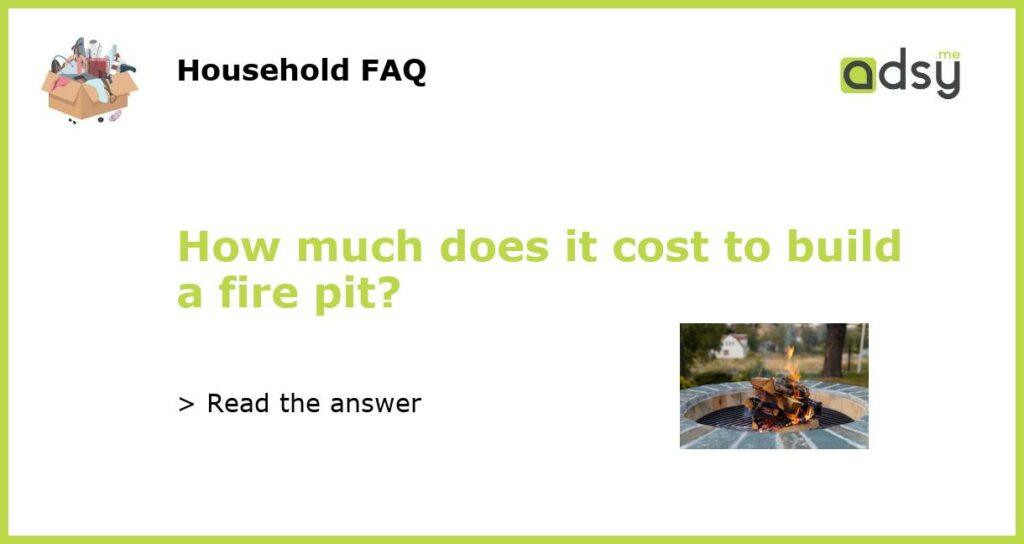The Benefits of Having a Fire Pit in Your Yard
There’s nothing quite like cozying up with a warm fire on a chilly evening. Fire pits are the perfect addition to any outdoor space, whether you’re entertaining guests or simply relaxing with family. They can also add value to your home and improve your curb appeal. Not to mention, fire pits come in a variety of sizes, materials, and designs, so you can easily find one that fits your style and budget.
The Factors That Affect the Cost of Building a Fire Pit
The cost of building a fire pit depends on several factors, such as the size, material, location, and labor costs. For example, a simple DIY fire pit made out of concrete pavers may only cost a few hundred dollars, whereas a high-end custom-built fire pit could cost several thousand dollars. Additionally, if you plan to hire a professional contractor to build your fire pit, labor costs can vary greatly depending on your location and the complexity of the project.
The Average Cost of Building a Fire Pit
According to HomeAdvisor, the national average cost of building a fire pit is $700. However, prices can range from $300 to $1,400 depending on the factors mentioned above. It’s important to keep in mind that this cost only includes the materials and labor for building the fire pit itself. If you also plan to install gas lines or outdoor lighting around your fire pit, the total cost could be much higher.
DIY vs. Hiring a Contractor to Build Your Fire Pit
If you have some experience with DIY projects and want to save money, building a fire pit yourself may be a good option. DIY fire pits can be made out of a variety of materials, such as concrete pavers, bricks, or stones, and there are countless tutorials and videos available online to help guide you through the process. However, if you’re not comfortable with DIY or want a more complex design, hiring a professional contractor may be worth the extra cost.
Other Considerations When Building a Fire Pit
Before you start building your fire pit, there are a few other factors to consider, such as safety regulations, local building codes, and insurance requirements. For example, some cities may require a permit for outdoor fire features, and you may need to position your fire pit a certain distance away from your house or property line. Additionally, it’s important to check with your homeowner’s insurance to ensure that your fire pit is covered in case of any accidents or damages.






